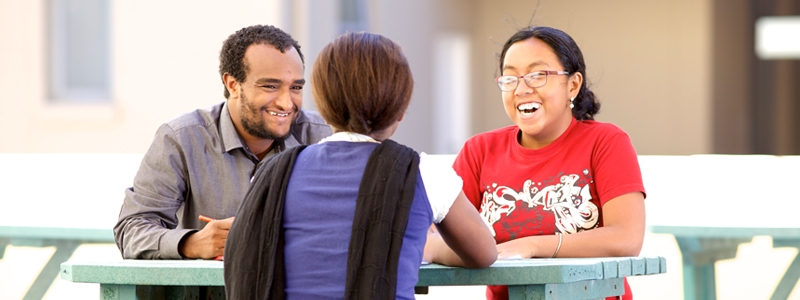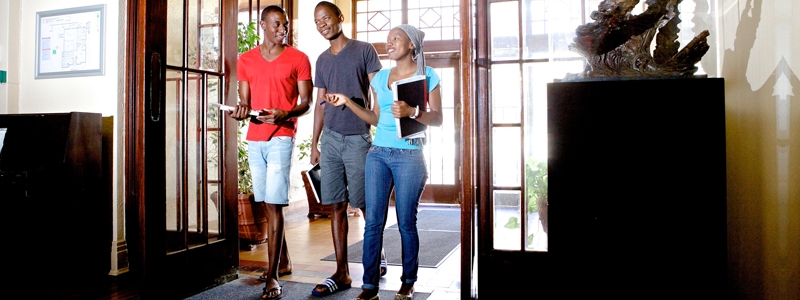Problem: Although almost one million students graduate from African universities each year, high-quality post-graduate courses are scarce on the continent, especially within the fields of science and technology. After graduation, few young adults begin post-graduate studies. And of those that do so, only a small portion remains in Africa. This affects education, science, industry, government and the overall development of the continent. To combat the brain drain, this project, begun in 2003 by Physicist Neil Turk in South Africa, aims to attract brilliant young Africans to the study of mathematical science. Afterward, these students may go on to other post-graduate courses and contribute in important areas, such as epidemiology, finance, the management of natural resources and the future self-sufficiency of the continent. Turk’s dream is to find the next Einstein in Africa, which is why the project was dubbed the Next Einstein Initiative. The project has many partners and patrons, including such major companies as Google and Barclays, as well as celebrities like Bono, Will Smith and Forest Whitaker.

Solutions: The project maintains five centers of excellence in Cameroon, Tanzania, Senegal, Ghana and South Africa, where it offers a Master's course in mathematical sciences to recently graduated young adults. The students, mostly from low-income families, receive full financial support during the course, which lasts approximately one year. The project is based around an innovative curriculum, which strives to foster independent thought that focuses on interactive learning, problem solving, teamwork, trust and communication. Students are encouraged to look for and discover their own potential, are trained to become entrepreneurs and apply their own solutions to community challenges.
By focusing on the student, the course offers an overall view of what is state-of-the-art in science and an in-depth examination of research capabilities in the fields of mathematics and IT. The curriculum is filled with disciplines, such as the formulation of problems, estimates, prioritization and mathematical methodology. Students work with two subjects at a time over three weeks, with classes occurring during the morning and afternoon and involving problem solving and computer science. Additional tutorials and special lectures are given at night, when the students also have time to finish their homework. At the end of the course, the students have to present their research project orally, which corresponds to the first part of a Master's thesis.
The institution also supports students in defining the next steps to take in their careers, through the provision of detailed information on its website concerning topics such as career development, job search tools, characteristics that are essential for becoming an entrepreneur and the application of mathematics in industry. The students can also converse with specialists about the professional fields that they are interested in.
The course employs African teachers and brings in lecturers from major world universities. Students and teachers, while participating in the project, live on the project premises, which is essentially a 24-hour learning environment. This helps to bring students, teachers and tutors together, promotes access to computers, the Internet and libraries, in addition to promoting a sense of Pan-African community. The organization also conducts academic research and raises awareness in order to elevate interest in mathematics and science in Africa. It also offers teacher training courses in order to increase the level of knowledge of those that are licensed to teach in these disciplines, and, with that, improve the quality of education in the schools.
 AIMS
AIMS
Outcomes: A total of 748 students from 42 African countries have graduated from the project, of which 30% are women. The majority of students that graduate from the project gravitate towards Master's and Doctor's degrees in leading African universities and other such institutions abroad. Currently, project graduates work in African universities, research centers, governments, companies and industries throughout the continent. Some examples of this include statisticians that work in energy companies in Zambia, system engineers working for IT consulting companies in Namibia and epidemiology researchers based in South Africa, in addition to professors that teach in various African universities. The project was one of the winners of the Wise Awards competition in 2013. In 2008, Neil Turk won the TED award. The project intends to reach 15 educational centers in Africa by 2023. The organization will host the first African Science Global Forum, known as The Next Einstein Forum, in Dakar, Senegal, in March 2016.







